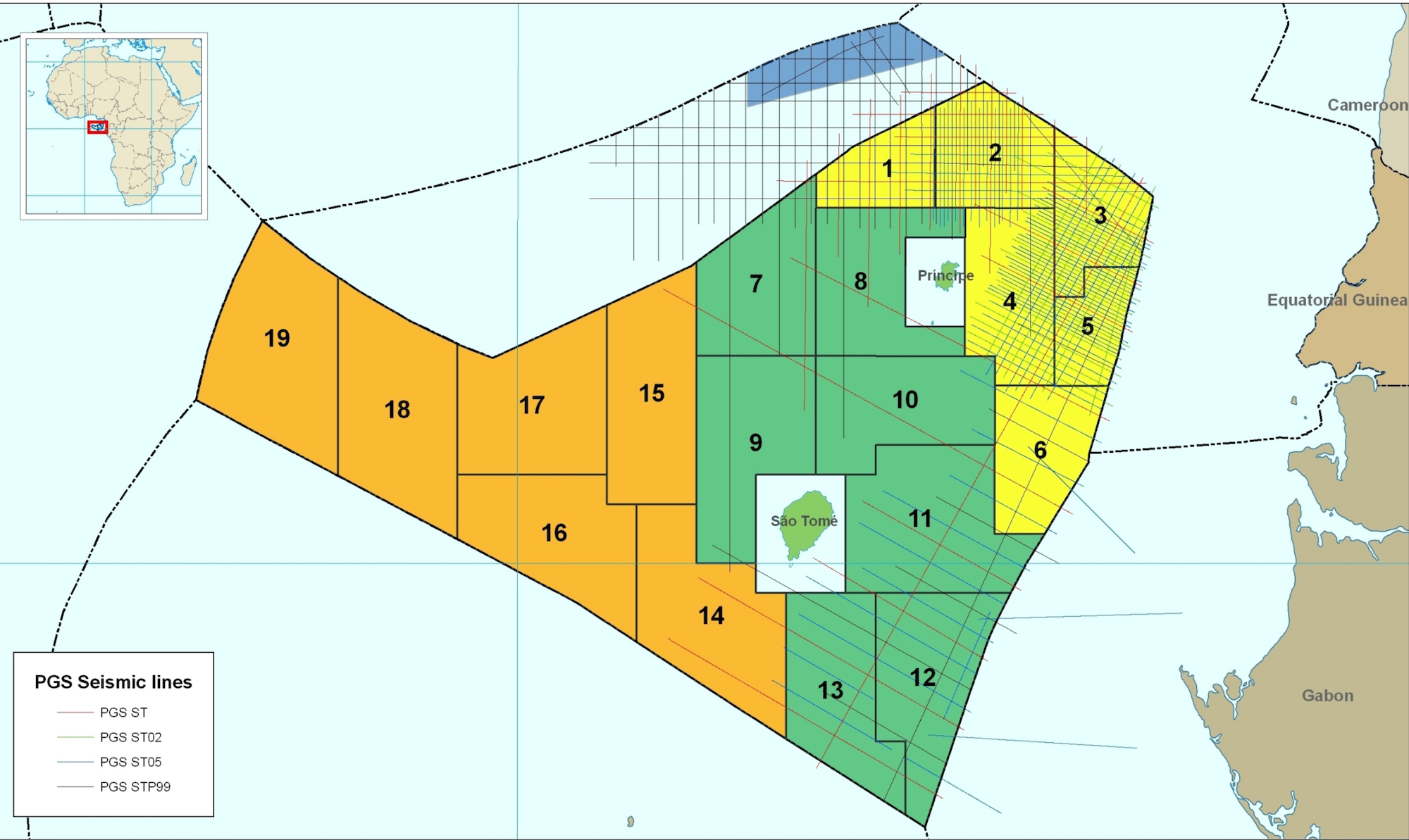Falcão-1 marks frontier test for Gulf of Guinea
Shell begins drilling the Falcão-1 deepwater well in São Tomé’s Block 10, targeting pre-salt structures as Brent (CL=F) stabilises near US$85 and offshore momentum builds.

Shell has commenced deepwater exploration drilling off São Tomé & Príncipe’s Exclusive Economic Zone, marking the first campaign under the country’s revised petroleum-sector framework. The Falcão-1 well, located in Block 10 about 170 km offshore and in 1 700 m of water, is part of a multi-well program targeting pre-salt structures comparable to those of neighbouring Gabon and Angola.
According to Jornal Económico, Shell mobilised the Valaris DS-12 drillship in early October 2025 following environmental clearance and a revised production-sharing contract that increased the state’s carried interest to 20 %. São Tomé’s National Petroleum Agency (ANP-STP) confirmed that drilling is expected to last 45–60 days, with first results available by December. Exploration success could reposition the archipelago within the Gulf of Guinea energy corridor after years of stalled activity.
The operation represents Shell’s largest frontier commitment in the region since its 2019 entry into Namibia’s Orange Basin. Company disclosures estimate exploration expenditure at US$110 million for 2025, a figure aligned with its African upstream reinvestment cycle. São Tomé’s government anticipates that any commercial discovery could add US$300–400 million in fiscal revenue over the field’s first decade, assuming Brent prices around US$85 per barrel (CL=F) and steady investment tax offsets.
Macroeconomically, the country’s GDP—about US$600 million in 2024—could gain a structural boost of 3–4 percentage points if production materialises. Inflation has eased to 7.2 % y/y, and the dobra remains stable at ≈ 24 STN/USD amid resilient remittances and external grants. Officials view the drilling as both a technical test and a confidence signal for investors considering complementary gas-to-power projects.
Regionally, the initiative follows a string of discoveries from Namibia to Côte d’Ivoire that have re-energised African deepwater exploration. The Brent–WTI spread and rising offshore service-day rates illustrate renewed corporate appetite for frontier acreage despite global transition pressures. Analysts highlight that Shell’s risk mitigation—shared infrastructure, modular FPSO design, and carbon-offset commitments—aligns with emerging ESG norms while retaining project economics above a US$60 break-even.
São Tomé’s authorities have pledged transparent data publication once drilling ends, mindful of governance concerns that have dogged earlier joint-development zones. Success at Falcão-1 would not only expand the Gulf of Guinea’s hydrocarbon map but also transform São Tomé & Príncipe from a passive observer into an active participant in Africa’s next upstream growth cycle.





